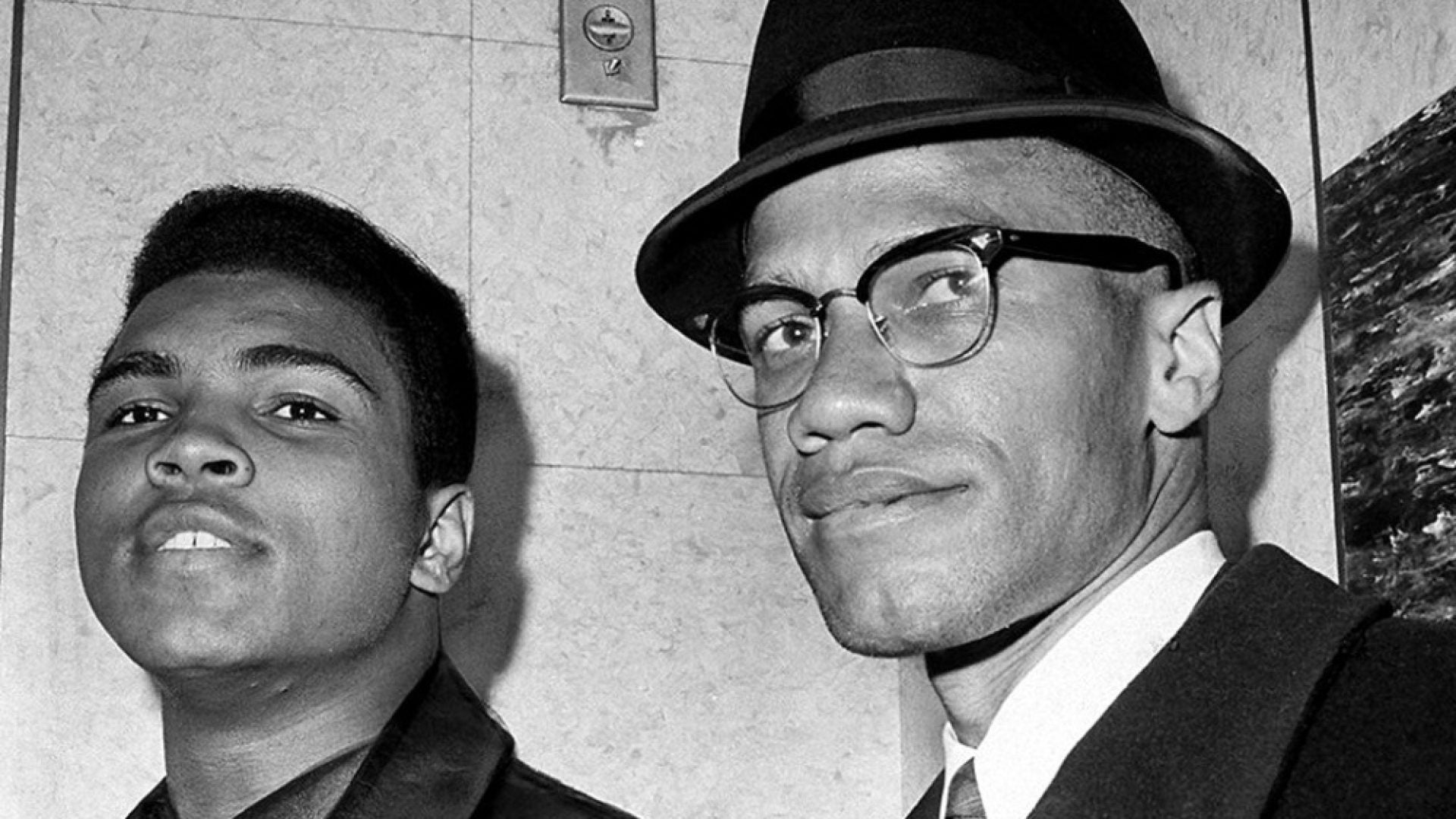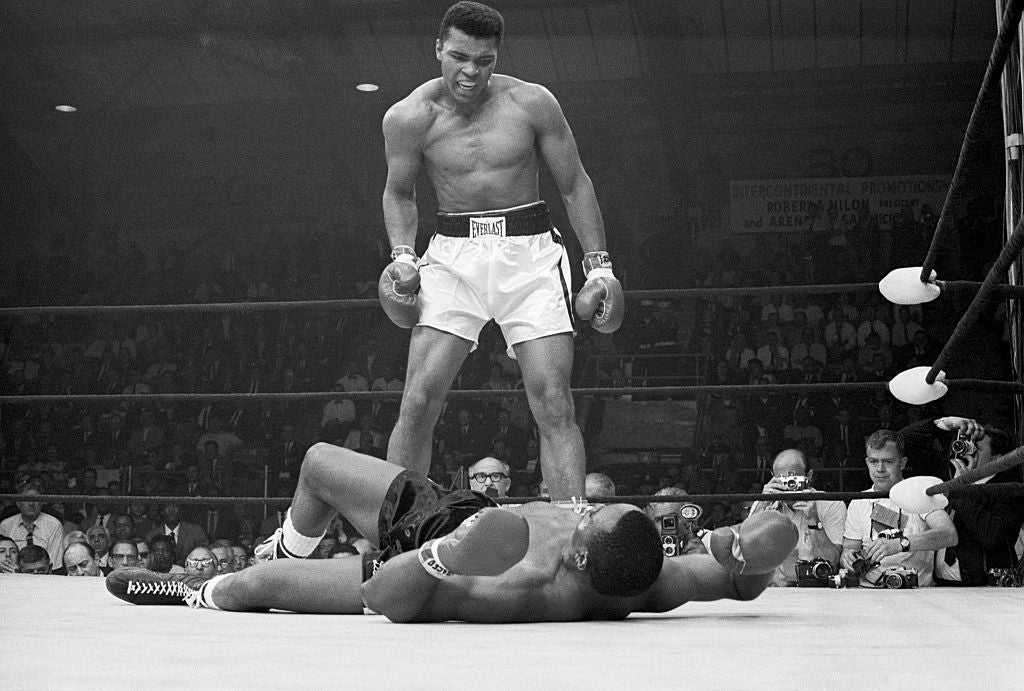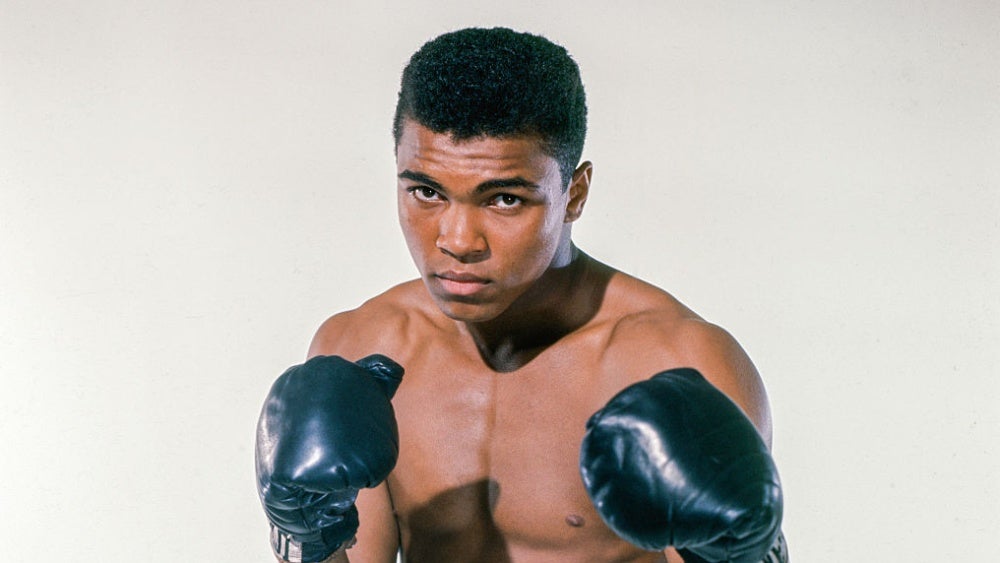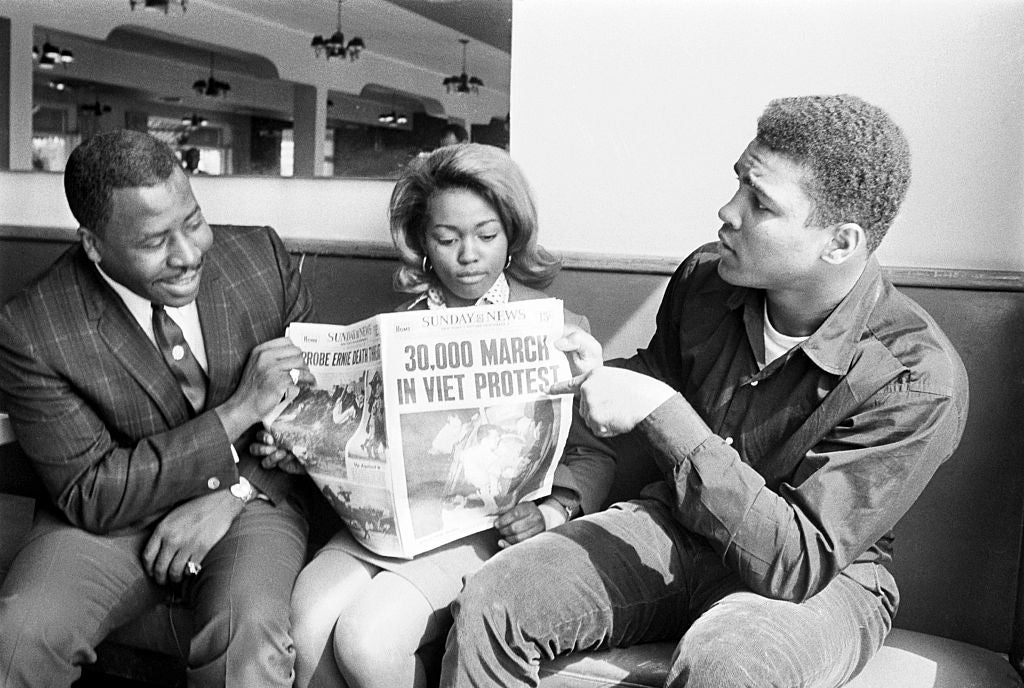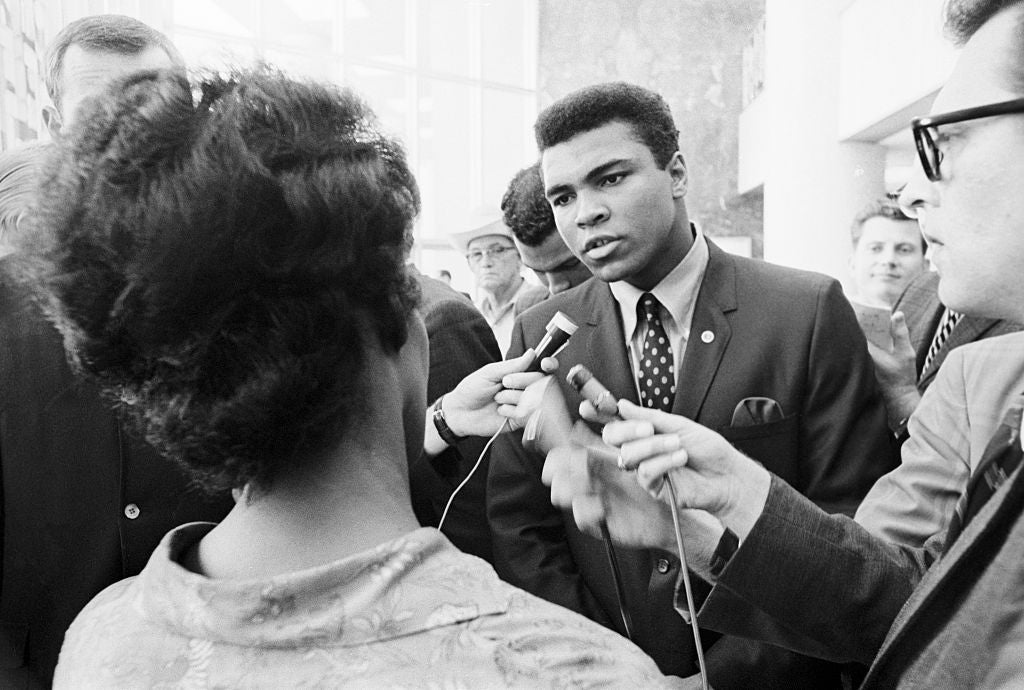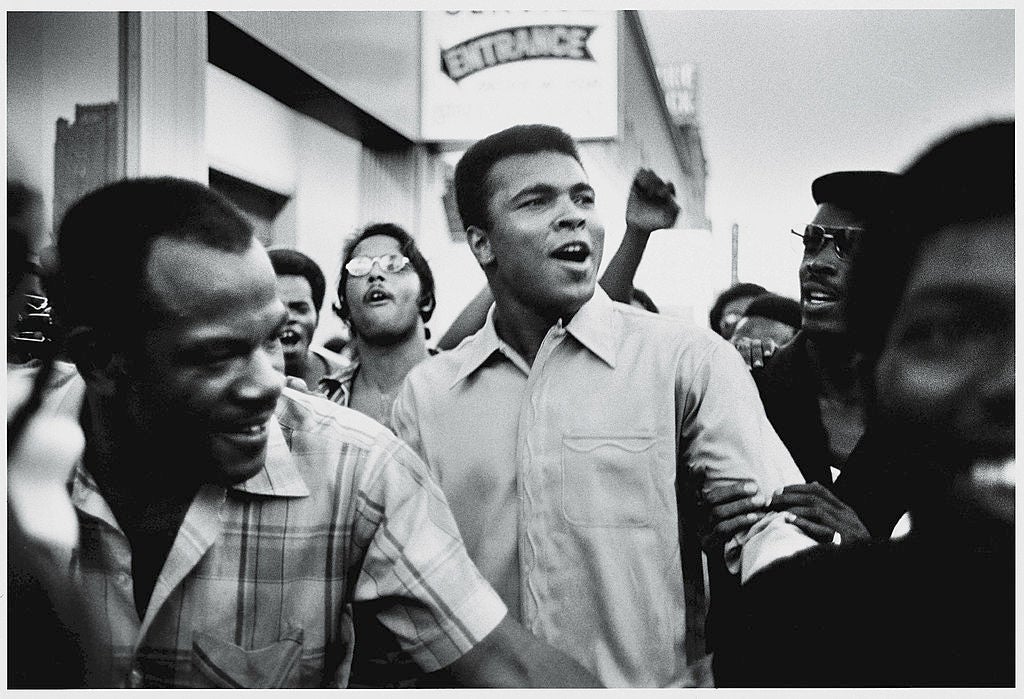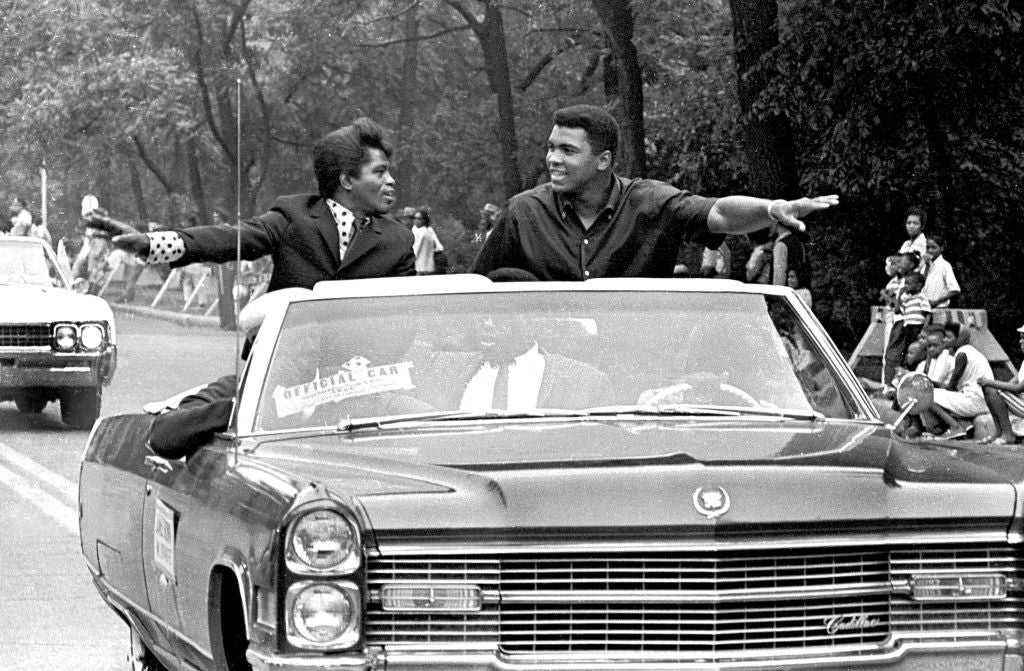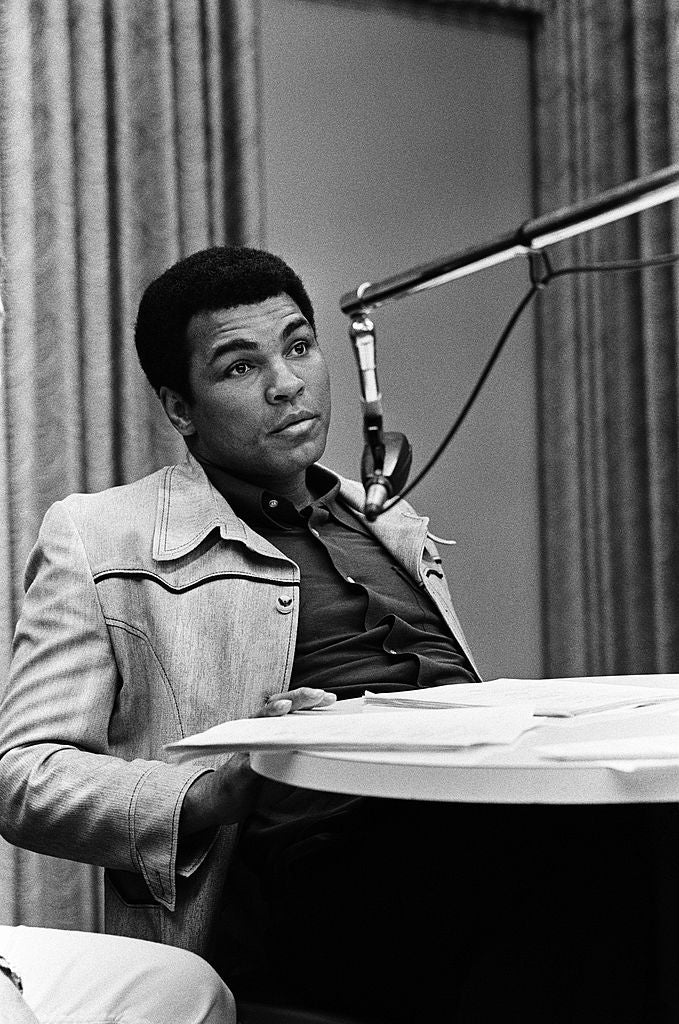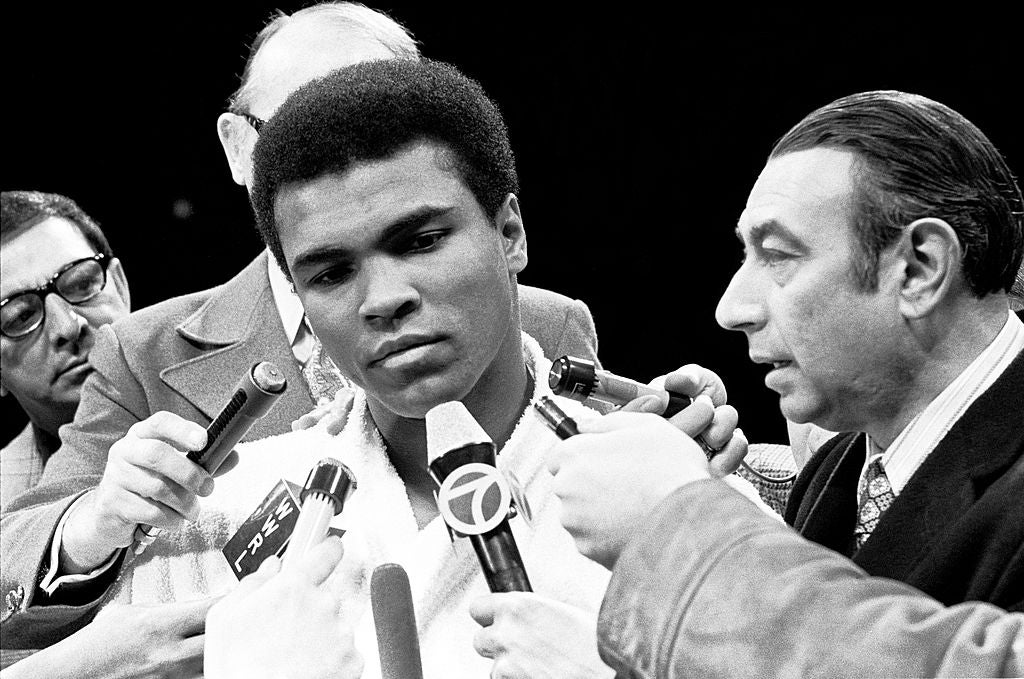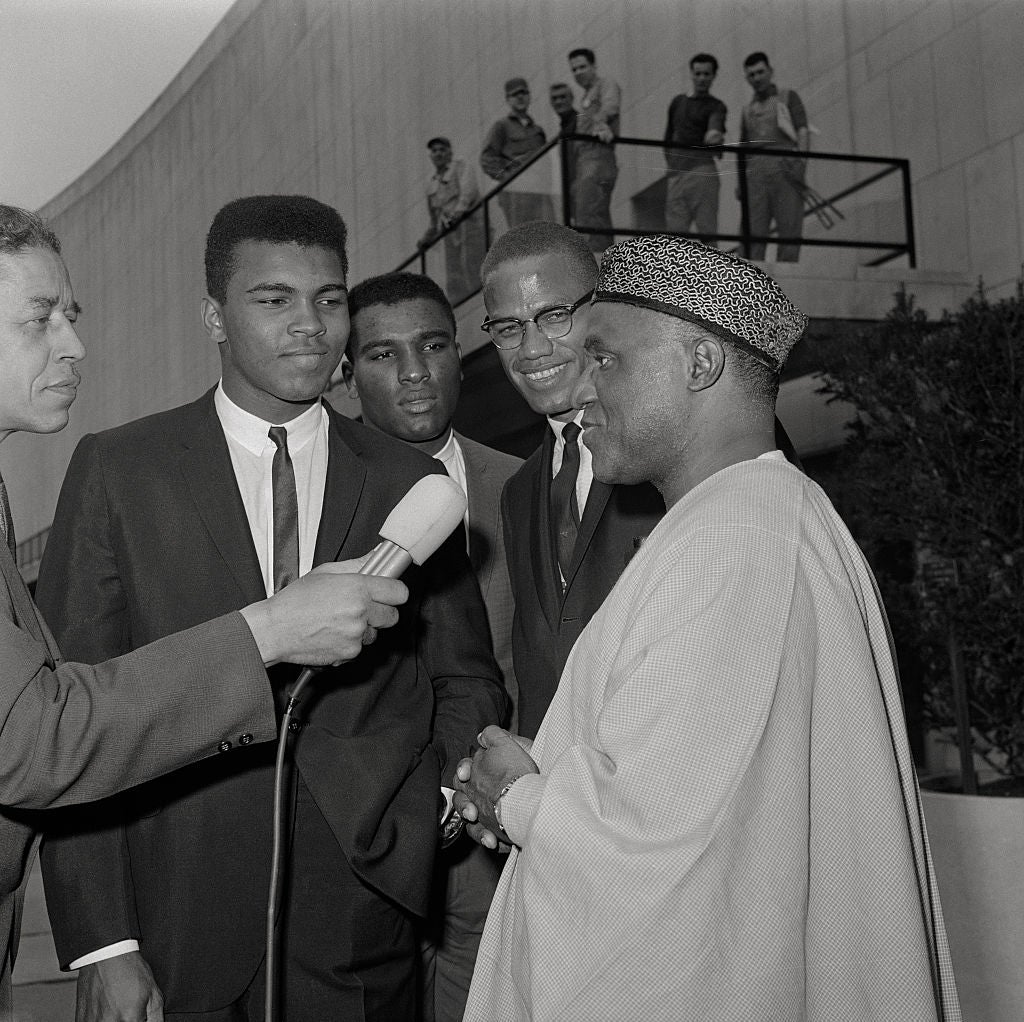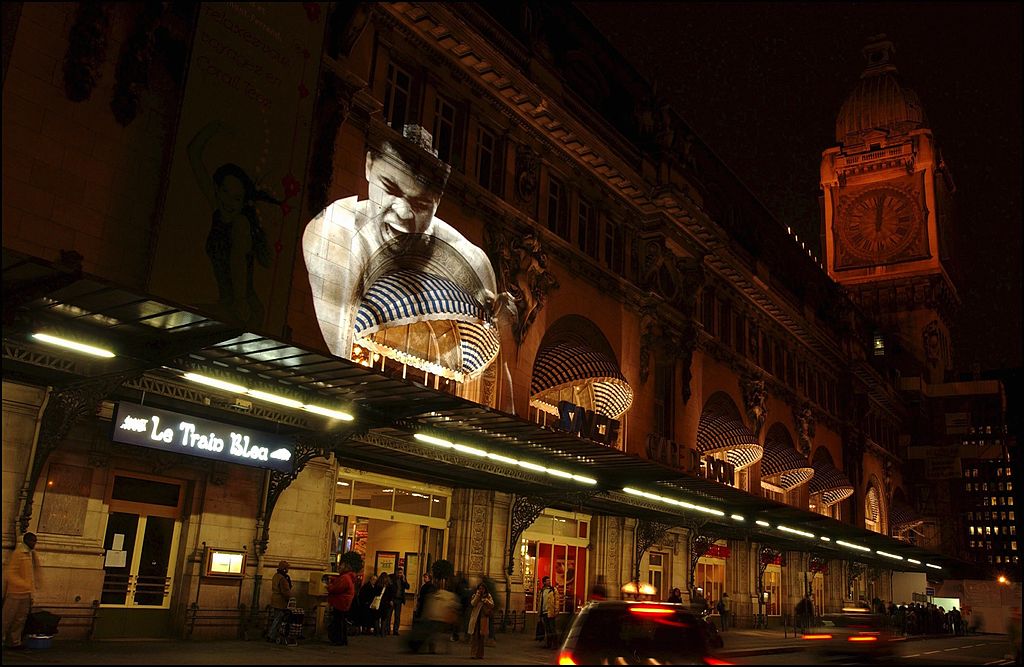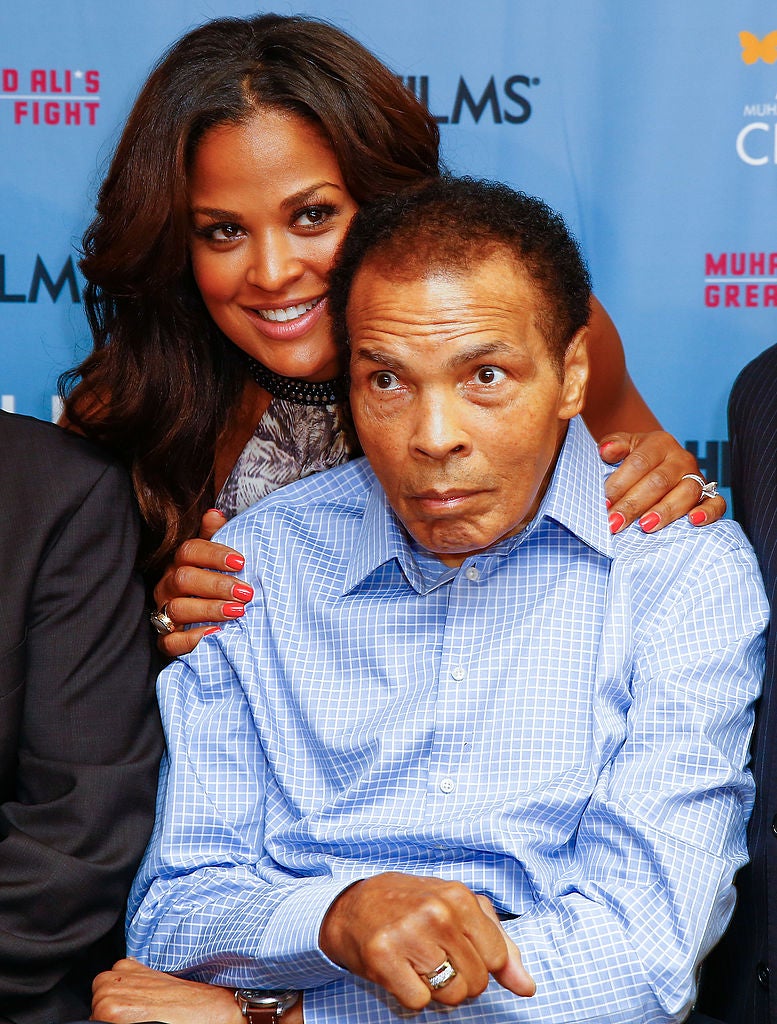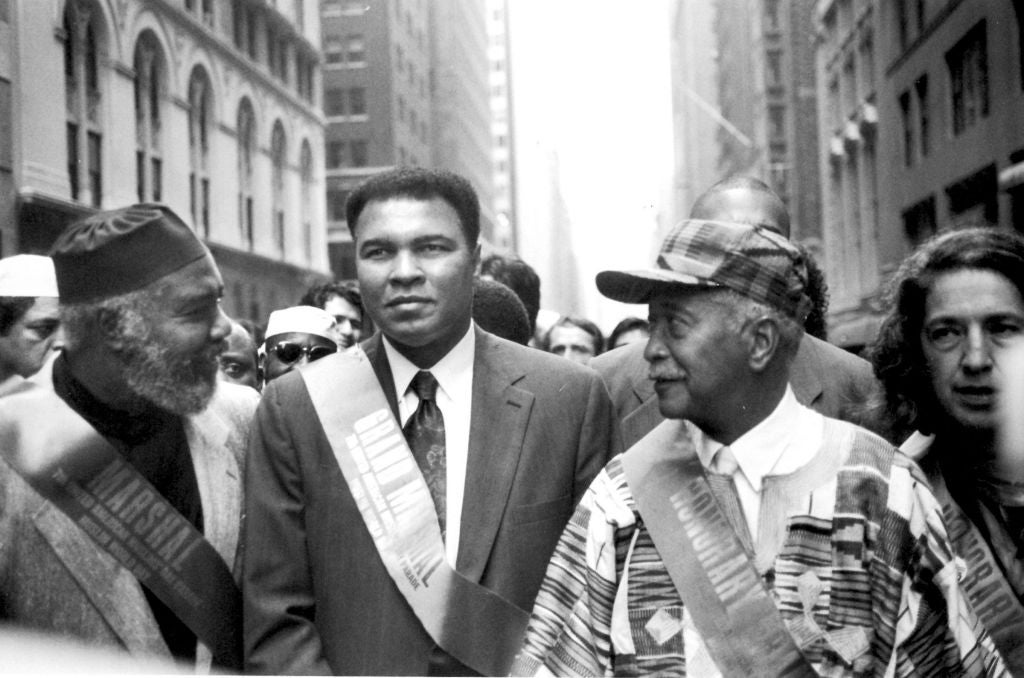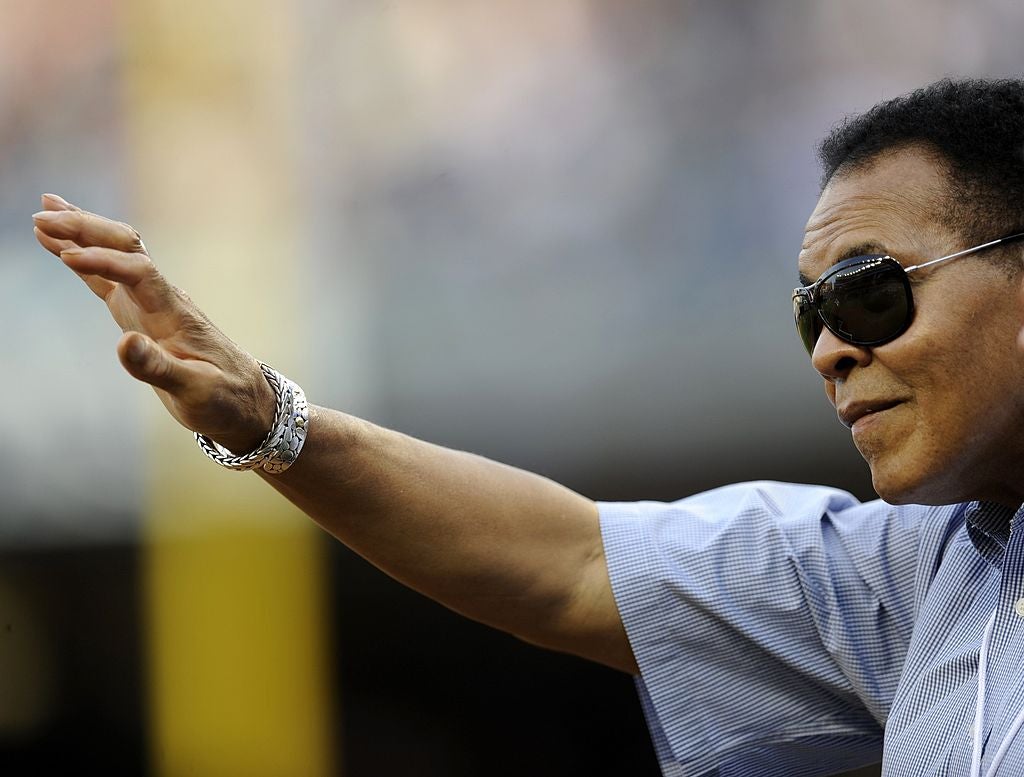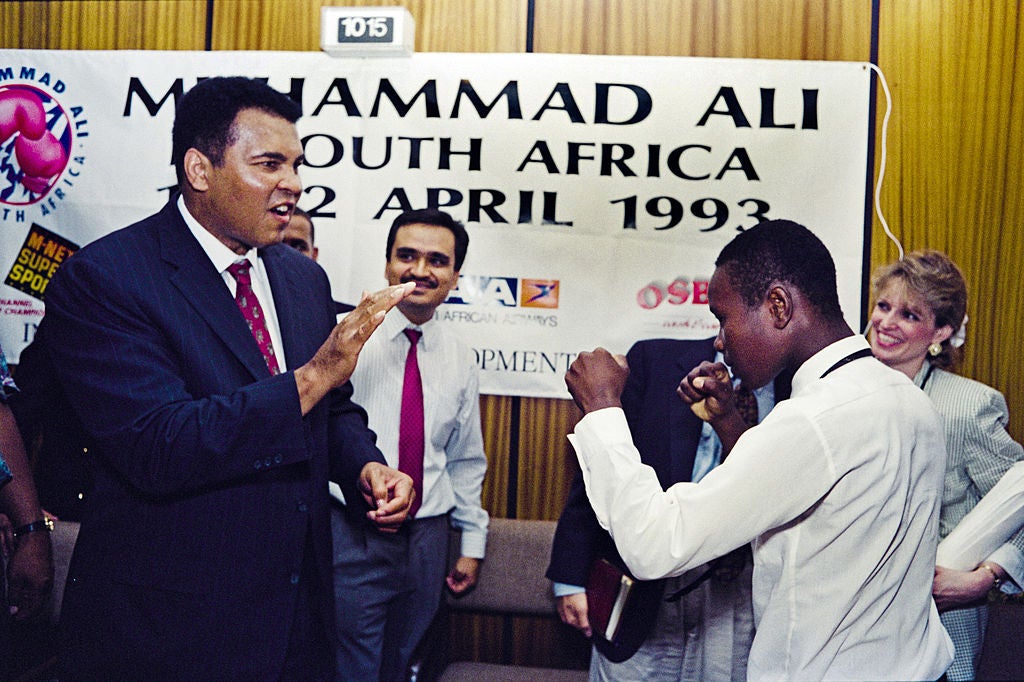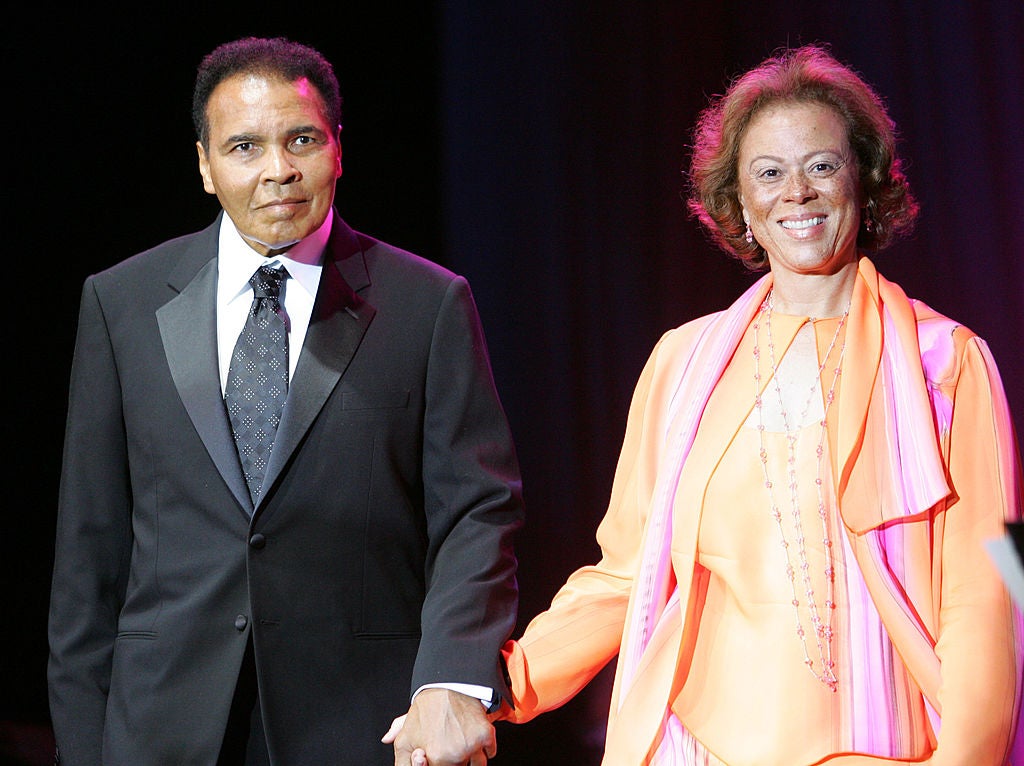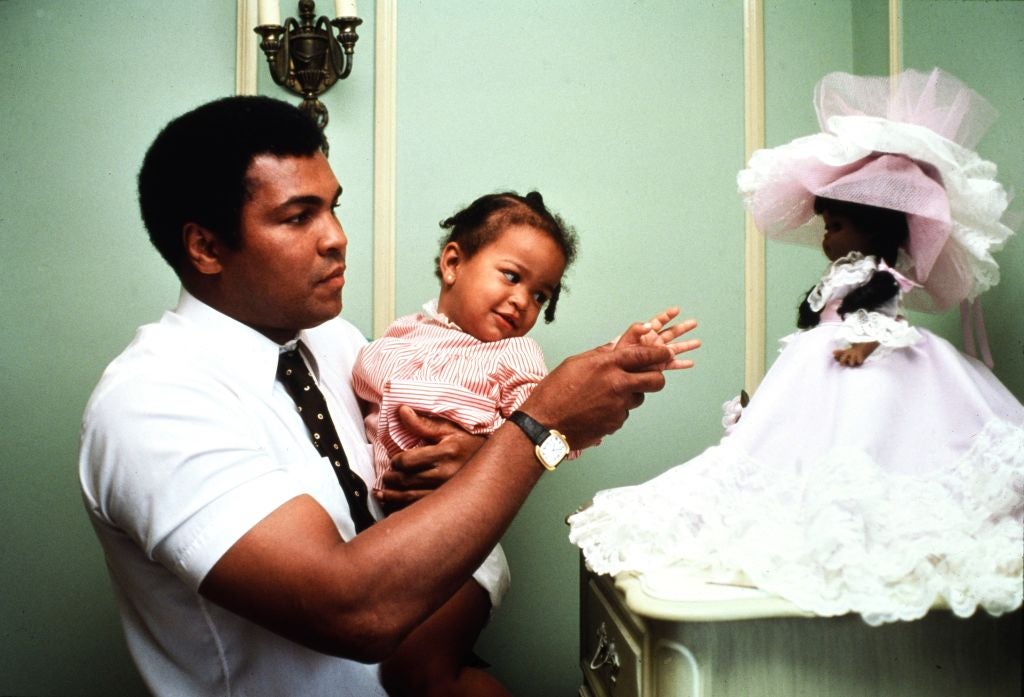In 1942, a legend was born: Muhammad Ali, the literal GOAT. [Fun fact: Lonnie Ali, Muhammad Ali’s wife, incorporated Greatest of All Time, Inc. (G.O.A.T. Inc.) to license her husband’s intellectual properties].
But not only did Ali break records in the boxing ring—being the first boxer to win three world heavyweight title championship bouts— he also was an advocate for his people, standing up for social justice and espousing powerful messages of Black pride throughout his lifetime.
To commemorate what would have been Ali’s eighty-first birthday on Jan. 17, ESSENCE is highlighting 17 moments he fought the great fight outside of the ring.
01
Ali didn’t just fight to win medals or glory
“When you saw me in the boxing ring fighting, it wasn’t just so I could beat my opponent,” he said. “My fighting had a purpose. I had to be successful in order to get people to listen to the things I had to say…I wanted to be a champion who was accessible to everyone. I hoped to inspire others to take control of their lives and to live with pride and self-determination.”
02
Demonstrating his conviction to racial justice and Black pride, he changed his name from Cassius Clay to Muhammad Ali
“Cassius Clay is a slave name. I didn’t choose it and I don’t want it. I am Muhammad Ali, a free name – it means beloved of God, and I insist people use it when people speak to me.”
03
The legendary boxer took an early stance against the Vietnam War after he was drafted in 1967
“Why should they ask me to put on a uniform and go ten thousand miles from home and drop bombs and bullets on brown people in Vietnam while so-called Negro people in Louisville are treated like dogs and denied simple human rights… But I have said it once and I will say it again. The real enemy of my people is right here. I will not disgrace my religion, my people or myself by becoming a tool to enslave those who are fighting for their own justice, freedom and equality.”
04
A trailblazer ahead of his time, Ali incorporated racial economic mobility into his platform when he formed Main Bout Inc
Main Bout would “allow African Americans to enjoy the lion’s share of profits from the world’s heavyweight championship, then the most lucrative prize in sports.”
05
A powerful orator, Ali was outspoken about how Black is beautiful
“The white tries to show the white as all-good. All the good cowboys ride wide horses. Angel food cake is white and devil’s food cake is chocolate… Black dirt is the best dirt. Brown sugar causes fewer cavities, and the blacker the berry, the sweeter the juice.”
06
Ali’s refusal to be drafted prompted the Cleveland Summit meeting of prominent Black athletes
The summit included “Hall of Famers Jim Brown and Bill Russell and a young Lew Alcindor (Kareem Abdul-Jabbar), and politicians [who] publicly expressed their support for Muhammad Ali after meeting with him about his conscientious objection to military service, [which] has been described as ‘a watershed moment…in the annals of both the civil rights movement and the protest against the Vietnam War.’”
07
Ali spoke with Black youth about their frustrations about the lack of progress during the Civil Rights era
During the summer of 1967, many anticipated a riot sweeping the streets of Chicago after the West Side uprising the year before; but this crisis was averted after “Ali appeared at a secret meeting in Chicago’s East Garfield Park neighborhood…urg[ing] reconciliation among Black youths in the neighborhood, an end to violence, and restraint in the upcoming summer.”
Article continues after video.
10
He touted the glory of Africa at a time when many were hesitant to do so
Ali challenged George Foreman for title of World Heavyweight Championship in the “Rumble in the Jungle” placing “a spotlight on a post-colonial African nation led by an African leader; as a demonstration of Black pride, Black pilots flew Ali there and the trip amounted to a kind of homecoming for a most famous African American; and a major concert accompanied the fight featuring some of U.S.’s and Africa’s top Black musical talent.”
11
Made uplifting Blackness synonymous with his trailblazing path
Ali helped the world “become accustomed to (if not always comfortable with) African-Americans as the face of a sport and a product pitchman. His commercials for d-CON roach traps in the late 1970s were among the first national ads to feature an African-American athlete promoting non-sports products.”
12
Ali helped free an Iranian journalist
After spending 545 days in an Iranian prison, Washington Post reporter Jason Rezaian, was freed in part due to the efforts of Ali, who released a statement during Rezaian’s imprisonment which helped to changed the tide— “I am sorry that I cannot be physically present to lend my support in person but I pray my words will provide relief to the efforts to secure the release of Jason Rezaian. Insha’Allah. It is my great hope that the government and judiciary of Iran will end the prolonged detention of journalist Jason Rezaian.”
13
Stood up against Trump’s Muslim ban
The fight for religious freedom came to the forefront during former President Trump’s Muslim ban, and Ali was a vociferous opponent, standing up against injustice stating, “We as Muslims have to stand up to those who use Islam to advance their own personal agenda…They have alienated many from learning about Islam. True Muslims know or should know that it goes against our religion to try and force Islam on anybody.”
14
Pledged his respect and assistance to Native Americans
The Longest Walk was held to bring the issue of Native people’s rights to the forefront as well as protest a slew of anti-Indian bills that would threaten treaty rights, which had been introduced in Congress. Ali joined in as they marched into the capitol city.
15
Continuously fought for the underdog
Ali “attended goodwill missions in Afghanistan and North Korea; delivered sorely needed medical supplies to an embargoed Cuba; traveled to Iraq and secured the release of 15 United States hostages; and upon Nelson Mandela’s release, journeyed to South Africa on a benevolent mission.”
16
A philanthropist to the core
Ali has been credited with possibly raising “more money for American charities than any other living person” before his death in 2016.
17
Helping children was one of his key goals
Ali has helped organizations like “the Chicago based adoption agency, The Cradle; the Make A Wish Foundation; the Special Olympics’ organization Best Buddies; Herbert E. Birch Services, an organization that runs a school for handicapped children and young adults, in addition to a summer camp for children infected with AIDS; and ‘Fight Night’ which generates funds for the ‘Muhammad Ali Parkinson Research Center’ at Barrow Neurological Institute, in Phoenix, Arizona. At the State Capitol in Michigan, he advocated new laws protecting children. In schools across America, he taught children the virtues of tolerance and understanding through his book HEALING.”
TOPICS: Muhammad Ali
